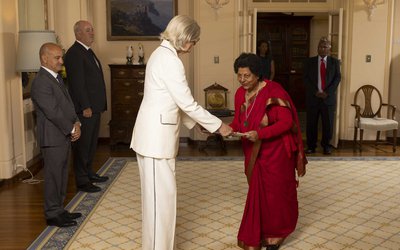
Happy New Year 2023: New Year’s Day celebrations in most countries begin December 31, which is New Year’s Eve, and continue till the early hours of January 1. During this time, party-goers share meals, good vibes and pray for good fortune in the coming year
Happy New Year 2023: New Year’s Day is a happy occasion, which is celebrated annually on January 1 in accordance with the modern Gregorian calendar. Across the world, people commemorate the occasion with their family members and friends, wishing them good luck and best wishes for another year; in many places there are massive gatherings. People decorate their houses, have get-togethers, cook for their loved ones and even plan outings on this day. But, the question arises as to why we celebrate this day and consider it to be special.
History
It is said the concept of ‘new year’ originated in ancient Babylon some 4,000 years ago, in the year 2,000 BC. Babylonians conceptualised the new year with an 11-day celebration called ‘Akitu’ that included a different rite on each day, on the first new moon after the vernal equinox (typically around late March). The festival commemorated the fabled victory of the sky deity Marduk over sea goddess Tiamat, as well as the act of crowning a new monarch or permitting the previous king to rule.
Significance
Today, New Year’s Day celebrations in most countries begin December 31, which is New Year’s Eve, and continue till the early hours of January 1. During this time, party-goers share meals, good vibes and pray for good fortune in the coming year. In many places, people gather to watch customary fireworks. It is believed that a new year is a new and clean slate, which is why people start afresh and make some resolutions on how they want to live their life. A person can pledge to modify an undesired habit or behaviour, and set personal goal(s).
Why do we celebrate New Year’s on January 1?
The early Roman calendar became out of sync with the sun over the years, and in 46 BC, emperor Julius Caesar resolved to fix the problem by contacting the most important astronomers and mathematicians of the period. Thus, the Julian calendar was established, which is similar to the current Gregorian calendar.
Interestingly, Caesar made January 1 the first day of the year partially to celebrate Janus, the Roman deity of beginnings. Romans commemorated Janus’ birthday by presenting sacrifices to him, exchanging presents, decorating their homes with laurel branches, and throwing wild celebrations.
Later, Christian authorities in mediaeval Europe temporarily replaced January 1 as the beginning day of the year with days that they believed had greater religious significance, such as December 25 (the birth anniversary of Jesus Christ) and March 25 (the Feast of the Annunciation). In 1582, Pope Gregory XIII reestablished January 1 as New Year’s Day, which has been celebrated since.
- Today's Weather: Partial Rain Likely In Koshi, Madhes, Bagmati And Gandaki
- Feb 17, 2025
- NIMB Supported Geta Eye Hospital
- Feb 17, 2025
- Snowfall At Pathivara
- Feb 16, 2025
- Online Labour Permit Approval Begins From UAE
- Feb 14, 2025
- Nepal, India Agree To Develop High-Quality Cross Border Transmission Line
- Feb 14, 2025
















